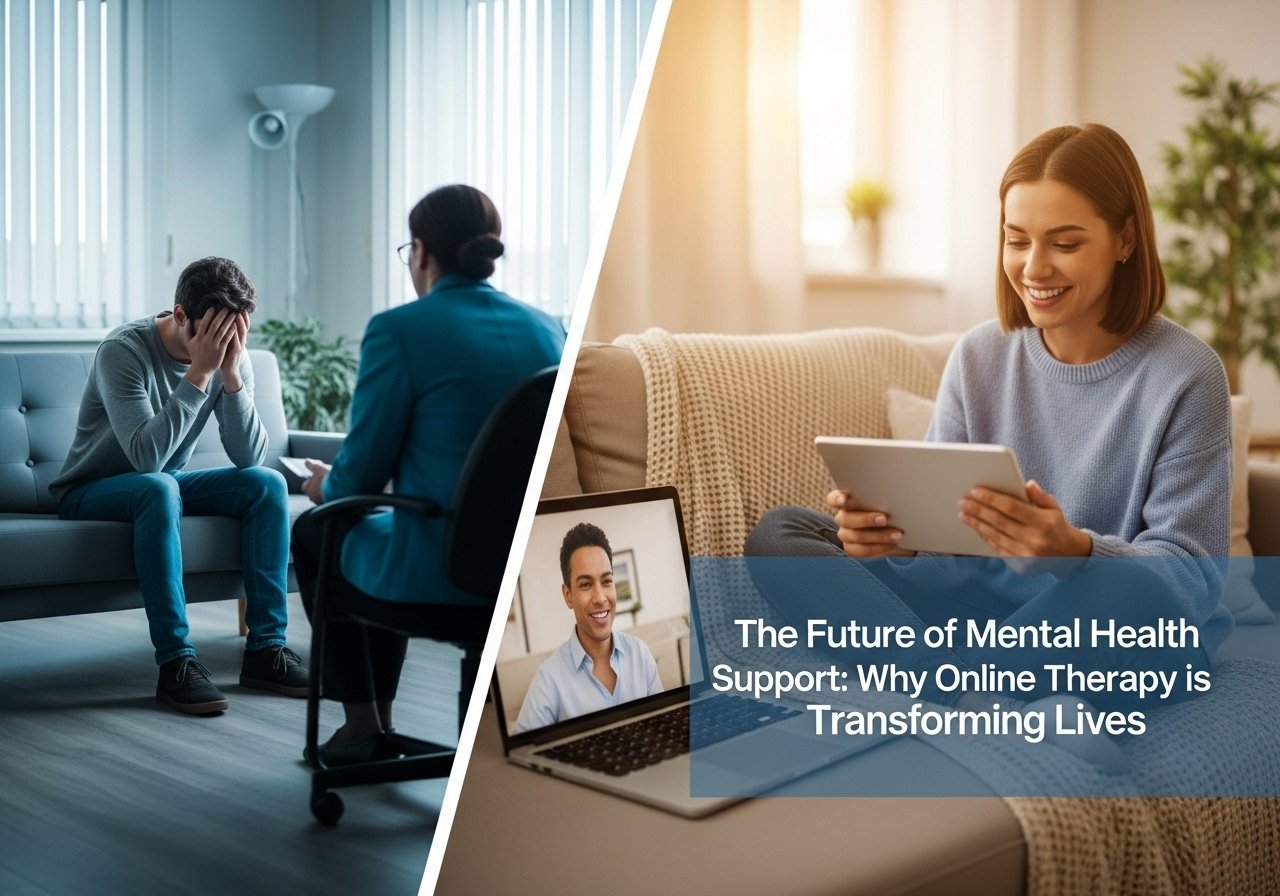Why Accessibility Matters in Mental Health Care One of the greatest benefits of online therapy is accessibility. Many people live in rural areas where there are few, if any, mental health providers. Others may have mobility challenges that make in-person visits difficult. For these individuals, traveling to a clinic or office can be both inconvenient and stressful. Online therapy eliminates these barriers. With just an internet connection and a device such as a phone, tablet, or computer, anyone can connect with a professional therapist regardless of their physical location. This means that people who previously had no access to specialized care can now receive support when they need it most.
Privacy and Comfort Encourage Openness Another important aspect of therapy is the environment in which it takes place. Many people feel nervous about visiting a clinic or sitting in a waiting room where others might see them. This concern can prevent them from seeking the help they need. Online therapy offers a more private and comfortable alternative. Sessions take place in a secure virtual setting, allowing clients to choose where they feel most at ease — whether that’s at home, in a private office, or even in a quiet outdoor space. This comfort often makes it easier for individuals to open up and share their thoughts and feelings, leading to more effective therapy outcomes.
Flexibility for Busy Lifestyles Modern life is busy, and scheduling regular therapy sessions can be challenging. Work commitments, family responsibilities, and other obligations often make it difficult to find time for in-person appointments. With online therapy, scheduling becomes far more flexible. Many providers offer evening or weekend sessions, making it easier to fit therapy into a busy schedule. This flexibility not only improves attendance but also helps clients maintain consistency, which is essential for progress in mental health treatment.
Breaking the Stigma Around Therapy Despite growing awareness about mental health, stigma remains a barrier for many people. Some worry that seeking therapy might make them appear “weak” or unable to cope on their own. Online therapy helps to reduce this stigma by making the process more discreet and approachable. People can access support without having to physically visit a clinic, which allows them to take the first step toward better mental health in a way that feels less intimidating.
The Role of Technology in Quality Care Some people may worry that online therapy is less effective than traditional, in-person sessions. However, research has shown that virtual therapy can be just as beneficial for a wide range of conditions, including anxiety, depression, and post-traumatic stress disorder (PTSD). Licensed therapists use secure video conferencing, instant messaging, and other digital tools to create interactive and supportive sessions. These methods ensure that clients receive the same level of professional care they would expect from an office visit, with the added benefits of convenience and accessibility. It’s in this space that services like online Telepsych have emerged, offering expert mental health care tailored to the unique needs of individuals seeking flexible, secure, and effective therapy options.
Who Can Benefit from Online Therapy? Online therapy is not just for people experiencing severe mental health conditions — it can be beneficial for anyone looking to improve their emotional well-being. This includes:
- Individuals coping with stress from work or relationships
- Students dealing with academic pressure
- Parents managing the challenges of raising children
- People navigating life transitions such as retirement or relocation
- Those seeking tools for personal growth and self-awareness
Cost-Effectiveness and Insurance Coverage For many people, cost is a deciding factor in whether they seek therapy. Online therapy often provides a more affordable alternative to in-person sessions, with lower overhead costs for providers and flexible pricing for clients. Additionally, more insurance plans are beginning to cover virtual mental health services. This expanded coverage makes online therapy a more accessible option for individuals who might otherwise forgo professional help due to financial constraints.
Tips for Getting the Most Out of Online Therapy To maximize the benefits of online therapy, consider these practical tips:
- Create a private space – Ensure you have a quiet, comfortable location for your sessions.
- Use reliable technology – A stable internet connection and good-quality audio/video will help keep your sessions smooth and uninterrupted.
- Be consistent – Regular attendance will help you make steady progress.
- Be open and honest – Share your thoughts and feelings as openly as you would in person.
- Set goals – Work with your therapist to define clear objectives for your mental health journey.
The Future of Mental Health Support As technology continues to evolve, online therapy is expected to become an even more integral part of mental health care. With improved platforms, expanded services, and increased public awareness, virtual therapy is poised to help millions more people achieve emotional well-being. The shift toward online care isn’t just a trend — it’s a lasting change that’s making mental health support more inclusive, affordable, and effective than ever before.
Conclusion Mental health is just as important as physical health, and everyone deserves access to quality care. By removing barriers related to location, cost, and stigma, online therapy is empowering individuals to take charge of their emotional well-being. Whether you’re facing a specific challenge or simply want to improve your overall quality of life, online therapy offers a flexible, private, and effective way to get the support you need. In a world where mental health struggles affect millions, the rise of virtual care is a hopeful and transformative development.
